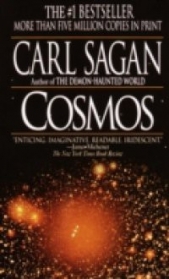Образ человека будущего, Том 7 (СИ)

Образ человека будущего, Том 7 (СИ) читать книгу онлайн
На основе предшествующих трех монографий Международное философско-космологическое общество начало выпуск научного журнала Future Human Image, в котором представлены современные мировые исследования образа человека будущего. Журнал охватывает области нейронаук, педагогики, философии образования и психологии. В данном выпуске представлены работы специалистов из США, России, Украины, Бразилии, Южной Африки, Испании, Казахстана. Журнал публикует исследования на русском, английском и украинском языках
Внимание! Книга может содержать контент только для совершеннолетних. Для несовершеннолетних чтение данного контента СТРОГО ЗАПРЕЩЕНО! Если в книге присутствует наличие пропаганды ЛГБТ и другого, запрещенного контента - просьба написать на почту [email protected] для удаления материала
Freud actually declared that there is no "evil" per se- there are unadaptive forms of receiving pleasure, the process of relieving tension, which in itself is normal and natural to all animals, including the human. This idea of "the naturalness of Desire" has exerted a very deep impact on all European and world culture of the 20th century. The "natural" human strives for pleasure, the main forms of which are connected with sexuality, while "artificial and repressive" morals prevent him "to find oneself." This collision has caused a huge number of works of modern art in the 20th century and was pondered about by their creators in terms of Evil dually. The first interpretation came down to denying evil, denouncing it as a "sanctimonious" invention and glorifying unlimited sexuality. The only form of something similar to an "absolute" Evil is deformed sexuality (sadism, first of all). This "enlightened hedonism" inspired the European cultural drive of "the roaring 20s" and found its reflection in fashion and the general atmosphere of emancipation of that time. It is worth mentioning in a few words that de Sade considered those forms of receiving pleasure, which have since been called by his name, as a natural consequence of the emancipated Desire, which is running away from Boredom - the eternal persecutor of pleasure.
Another interpretation is more "pessimistic" and at the same time more "human"; it is based on the recognition of an idea that evil cannot be eliminated, provoked by the animalistic, wild and deep-rooted human nature lying behind a thin cover of rationality and morals. It is regrettable, but the person remains an aggressive and perverted animal even if one tries to overcome this wildness in cultural space. This interpretation has in turn generated two branches. First, the European existentialism with its stoical focus on hopeless, but necessary fight against the evil, and hope to find sense in the senseless, presented in literature by Erich Maria Remarque, Jean-Paul Sartre and Ernest Hemingway. Second, pessimistic nihilism, which is represented most vividly, for instance, by Louis-Ferdinand Celine ("Voyage au bout de la nuit") with his hopeless capitulation of Good to Evil.
Anyway, both branches of this literary and philosophical discourse proposed no convincing approaches to the solution of the problem of Evil.
Future Human Image. Volume 7, 2017 39
Evil as a Subject of Sociological Cognition: Methodological Reflections by Temyr Khagurov
Friedrich Nietzsche made the idea of relativity and artificiality of the evil absolute. His criticism of the "morality of the weak", which leads to "the other side of Good and Evil", proclaims a traditional moral discourse even more radically artificial. The Good is the realized aspiration to power, to free self-establishment of a personality struggling against the world and others, while the Evil is the constraint to this will. Nietzsche"s huge influence on postmodernism was revealed in the works of its most prominent representatives, including Foucault with his analysis of the interconnection between power and sexuality as well as Derrida with his idea of "eternal return" to the Babel towers.
Nietzsche"s ideas set one - nihilistic - aspect of the understanding of Good and Evil in the intellectual area of the present times. What we usually call "evil" is only the repression of "willingness to power" (which in essence is the will to live) carried out by the weak in relation to the strong. However, the genuine reality of life lies "on the other side of Good and Evil".
Another aspect, the soteriological one, is set by Marx"s ideas. In all his criticism of social forms and their peculiar types of morals Marx does not actually get down to denying moral as it is, but only shows its partial conditioning by a social class. The law, formally equal for all, allows some humans to luxuriate with a feeling of moral righteousness, whilst condemning the others to hopeless wretched existence. These forms of the evil have been very brightly and thoroughly described, practically on the borderline of sociology and literature, by Jack London ("The People of the Abyss"), Maxim Gorky ("At the bottom", "Mother") and other realists at the turn of the 19th-20th centuries.
The main forms of Evil (quite real and tangible in terms of traditional moral), according to Marx, are alienation and exploitation. Besides, he as a more dangerous, "evil" and metaphysical phenomenon considers alienation. Exploitation is an obvious evil and therefore is easier to cope with. Additionally, alienation can also take latent forms. Alienation of goods from their cost, of a person from work, eventually there are singular forms of more general alienation - a form from its contents, existence from its embodiment, phenomenon from essence. This interpretation of Marx has been subsequently deeply developed by the theorists of Frankfurt school, primarily Erich Fromm and Herbert Marcuse, whose works we will refer to again later on.
While Nietzsche actually encourages to take Evil for Good and to accept "morals of the strong" (i.e. actually immoralism) instead of "morals of the weak", Marx calls for a fight against the evil. Actually the whole history of the conflict theory development, including its latest versions (e.g. Paul J. Taylor, Paul Walton, Juliette Young) [Gilinsky, 2013: 116-120], was inspired by the idea of overcoming Evil whose roots can be found in the wrong social structure that makes exploitation and alienation possible, which in turn are the reasons for the individual evil. However, the field of scientific and philosophical discourse on the evil topic is not yet complete with the opposition of Marxism and postmodernism (or better to say, of soteriology and nihilism).
Another direction of theorizing on the subject of Evil is set by critical rationalism and, first of all, by its most famous representative - Karl Raimund Popper. In "The Open Society and Its Enemies" Popper, likewise Marx, argues about the need to overcome Evil [Popper, 1992]. Similarly to Marx, he finds the reasons for it in the wrong social structure together with the "wrong" thinking (but if, following Marx, this is incorrect class-consciousness, according to Popper - it"s the lack of critical rationality). Yet, the main form of the social Evil for Popper is "totalitarianism" (which is inevitably connected with violence to an individual) and he apparently compared collectivism to it in all manifestations. This is the first fundamental contradiction between Popper and Marx: for the latter collectivism acts as one of the conditions
40 Future Human Image. Volume 7, 2017
Evil as a Subject of Sociological Cognition: Methodological Reflections by Temyr Khagurov
of eradicating Evil (social exclusion); the former, Popper, considered individualism to be the absolute social benefit (though its grounds are not quite logical and explanatory) associated with mercy and rationality. At the same time, Popper"s instruction for overcoming Evil is directly opposite to Marx"s guideline: one must not fight Evil taking "big steps" - it inevitably generates the bigger Evil. It is necessary to improve rational and technological devices so as to "eradicate Evil in small portions", gradually changing the separate aspects of social reality. The conflict of the ideas "Marx vs. Popper" caused the main political opposition of the 20th century between liberalism and communism, which demonized each other, announced each other "the empires of Evil" and managed it from the related methodological positions of























